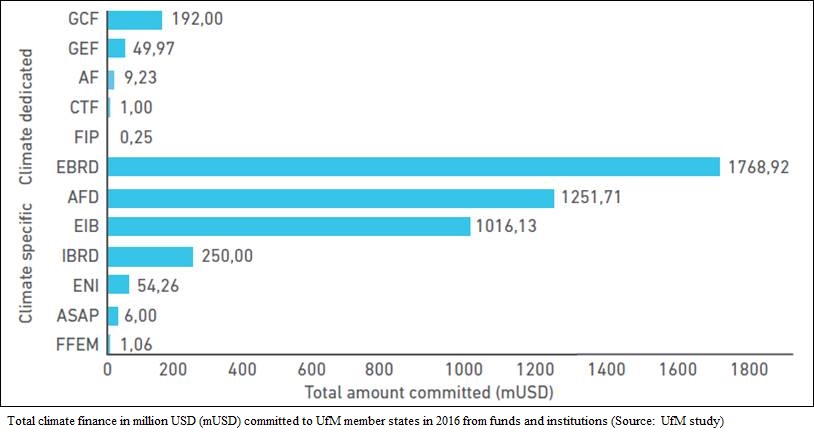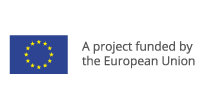Climate finance update for the Mediterranean region

A total of USD 4.6 billion in climate finance for more than 100 new projects was approved in the Mediterranean region during the year 2016. According to a new assessment presented by the Union for the Mediterranean (UfM) at the COP 23, USD 4.3 billion originated from climate specific funding and USD 252 million from dedicated climate funds. The majority of funding was channelled through the European Bank of Reconstruction and Development (EBRD), the European Investment Bank (EIB) and the International Bank for Reconstruction and Development (IBRD). Bilateral donors also played an important role, primarily Germany (14%), France (10%), EU institutions (6%), the United Arab Emirates (3.6%), and Japan (3.5%).
Recipient countries in the region. Turkey was the primary recipient of climate finance (USD 2 billion) followed by Morocco (USD 960 million) and Egypt (USD 690 million), mainly for renewable energy activities with a strong mitigation component. No identified climate finance was approved during the 2016 budgetary year for Israel, Libya, and Syria. Several projects are underway in Palestine, although funding is yet to be confirmed. During 2013-2015, Palestine received USD 395 million for 160 grants, primarily to improve water supplies and sanitation.
Dedicated climate funds contributed only 4% of total climate finance to the region over 3 years. The largest fund was the Clean Technology Fund (CTF) (1%), whereas the Global Environment Facility (GEF) and its dedicated funds, the Special Climate Change Fund and the Least Developed Countries Fund, contributed less than 1% to the region. Most regional funding was orchestrated by the Green Climate Fund (GCF). Egypt, Jordan, Morocco and Tunisia received 80% of such funding together, which increases their total approved funding volumes by approximately USD 40 million each.
Developed countries committed in 2010 to raising USD 100 billion per year until 2020 to support climate action in developing countries. The assessment, funded by the European Commission, has been developed in cooperation with Euro-Mediterranean financial institutions and donors, with the aim of analysing the current state of climate financing in the region, while quantifying contributions towards the USD 100 billion pledge.
Resources: UfM Climate Finance study | OECD Climate Fund Inventory | ClimaSouth E-Handbook N.8 | Climate Funds Update | World Bank Joint Report on Multilateral Development Banks Climate Finance 2016 |OECD Geographical Distribution of Financial Flows to Developing Countries 2017 | The Green Climate Fund. Climate Funds Update



